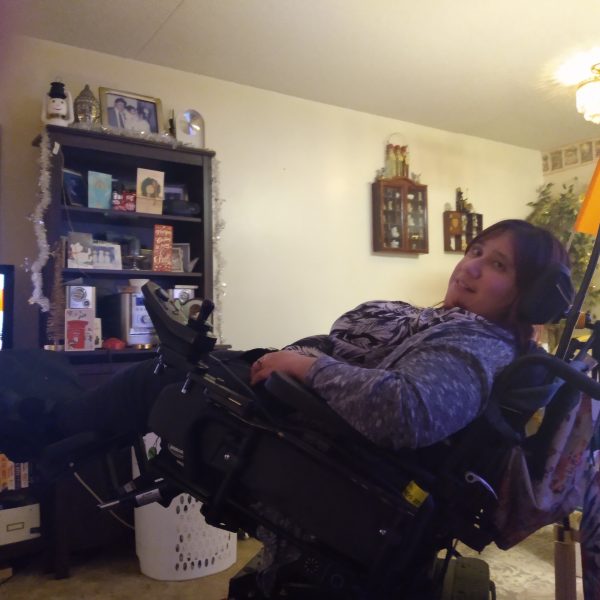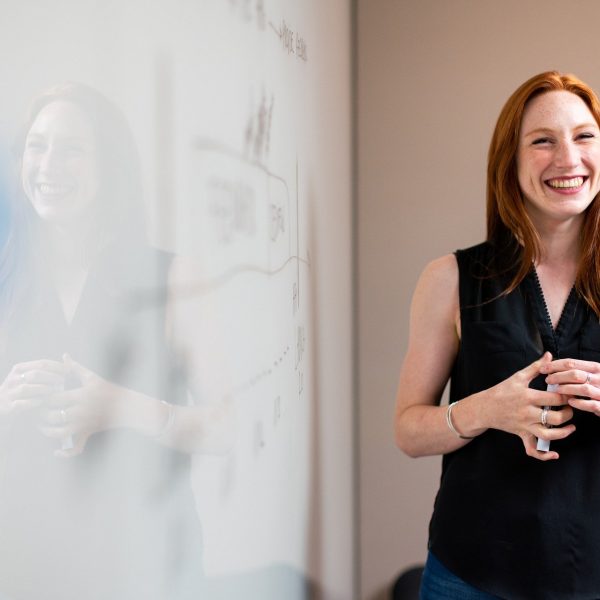Built-in Accessibility Features for Students

Student life can be challenging for anyone, and for persons with disabilities, this is especially true. Of course, there are plenty of tools and apps available to help overcome barriers surrounding disability and education, and we’ve explored many of those solutions in past e-bulletins. Unfortunately, some of these solutions require extensive training, funding/purchasing of equipment, etc., which can sometimes present a whole new set of barriers to the student. Today, we are going to look at some cutting-edge accessibility features that come built-in to mainstream technology. These features are free, they already exist on the device in question, and they are typically fairly easy to activate and operate. Let’s take a look!
Windows 11 Accessibility

Over the past several years, Microsoft has been gaining ground in the battle for most accessible computing systems. During that time, Windows has made vast improvements in its out-of-box accessibility. And now with a new Windows OS on the horizon, it’s evident that Microsoft has embraced the concepts of universal design and accessibility in a big way.
Windows 11 seeks to pack in even more accessibility features than the already impressive Windows 10. In today’s e-bulletin, we’re going to dive into those features a bit, but keep in mind, some of the features that we’re looking at today might change or be updated as OS continues to evolve.
WorkBC Assistive Technology Services Helps George Start a New Job

George had been working in retail in Victoria and was looking forward to starting a second job, a work from home position as an accessibility tester for digital products. But he needed the right equipment to start his new job.
He has Tourette Syndrome, with a frequent motor tic and a stutter when he speaks. In particular, he has difficulty using a computer with a keyboard due to his motor tic.
“This Program Has Made Dealing With This Disability So Much Easier, and I Can’t Recommend It Enough”

Hunter works as a line cook at a popular pub in Vancouver. Whether he’s preparing food or relaying a ticket to other kitchen staff, the job requires effective communication to get the job done and to stay safe. He is hard of hearing and needs to use hearing aids.
“I need to be able to hear and understand instructions properly in order to ensure orders go out correctly, to ensure safety for myself and others, to avoid any potential problems with allergies, to hear timers and alarms, and more. I am unable to read lips at work as everyone is required to wear a mask,” he shares.
“My Life Has Changed,” the Right Tools and Training Help Trina Launch Her Business

Trina is starting a new business as an intuitive coach in Delta and throughout the Lower Mainland. In starting her own business, she has to build up her brand through social media, advertising, and finding new clients. Her line of work also involves continually learning new skills and techniques.
However, Trina lives with learning challenges in reading and writing, as well as memory retention.
“This impacts both learning new tasks, retaining information, and overall interest in any function that includes written words,” she shares. “I find I am often behind in paperwork, new updates, and learning when they are self-directed or are written.”
Philippe Increases His Independence With Technology

Watching Philippe sing his songs, you’ll notice he can be a bit of a one man band — he’ll sing, he’ll play the guitar, he’ll do the percussion all at once, sometimes he’ll even throw in a harmonizer effect to create harmonies by himself.
Born blind in Clair, New Brunswick, Philippe started his musical journey at five years old, and he can play almost any instrument you can name. He learns songs by ear and adds his own flavour to them, and is a prolific songwriter himself.
WorkBC Assistive Technology Services Helps Brian Keep Working in Real Estate

Brian has about 40 years of experience as a realtor. Based in Victoria, he is passionate about serving his clients needs, and as a senior, wants to keep working.
“My most important duty is understanding the needs and desires of my clients, and then translating those needs into results,” he shares.
“My problem over the last few years has been mainly communication. My hearing has been deteriorating leading to embarrassing episodes where I have misheard my clients and had to have [them] repeat [themselves], sometimes several times. That is not conducive to trust and confidence.”
“I Am Now Able to Work Effectively and Efficiently”

Vanessa works seasonally with Community Living BC. Born with spina bifida, a left ventricular shunt, and a cognitive delay, she does workshops for high school students with disabilities looking for the next steps out of high school, as well as with families looking into their services.
Her occupational therapist referred her to the WorkBC Assistive Technology Services program.
Through WorkBC Assistive Technology Services, Vanessa received a power elevating seat lift, allowing her to reach things higher up at work. She also received the components to retrofit it into her current power wheelchair.
Randy Continues His Meaningful Work Thanks to WorkBC Assistive Technology Services

“Retirement was not for me, but I did not have necessary technology to enable me to be productive,” says Randy, who is blind.
Randy is a founding board member of the One in Spirit Healing Arts Society, a non-profit society facilitating transformative healing moments, rooted in First Nations teachings. He recently started work as the Nuu-Chah-Nulth Elder-in-Residence for the Nanaimo campus of Vancouver Island University, a job he credits WorkBC Assistive Technology Services helping him to get.
He had heard about the program on the radio and decided to apply.
“I Know Now That I Can Face My Future With Courage,” WorkBC Assistive Technology Services Makes the Difference for Linda

Linda used to work as a pharmacist but had to stop due to severe pain in her hands and wrists.
“I live with chronic pain in my hands, feet, and hips from previous injuries. It is very difficult for me to use a mouse and keyboard, to use a pen to write, to hold and use my smart phone, to sit for prolonged periods of time or to stand for prolonged periods of time,” she says from Richmond. “As a result, working at a computer station is very difficult for me. For a long time, I was not volunteering or working as a result of these limitations.”



